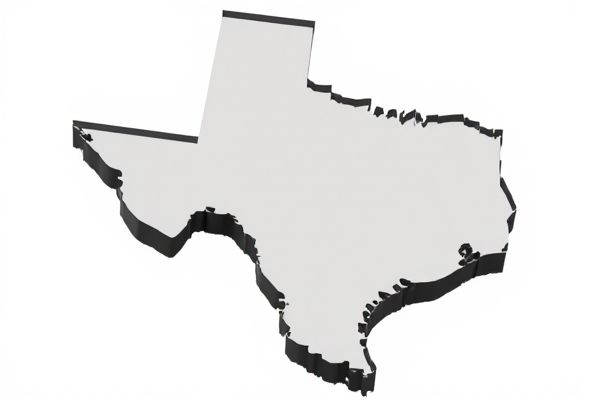
Generate authentic Texas addresses effortlessly with our reliable random address generator tool. Perfect for testing, marketing, or creative projects, this tool provides accurate and realistic Texas location data instantly. Experience seamless and efficient address generation tailored to your needs within seconds.
Online tool for random address generator texas
Here are several samples of a random address generator for Texas, prepared and ready for immediate use. You can also input your own list to customize the results. With just one click, the tool will provide you with a randomized list and a single value for easy use.Data Source
Single Result
Multiple Results
Understanding Random Address Generators in Texas
Random address generators in Texas create synthetic addresses by using algorithms that blend available geographic data and postal information unique to Texas regions. These tools ensure generated addresses reflect realistic ZIP codes, street names, and city data relevant to Texas, supporting applications in software testing and data anonymization. Understanding how these systems integrate Texas-specific address formats enhances data accuracy and compliance with regional standards during development processes.
Key Features of Texas-Based Address Generators
Texas-based random address generators provide accurate and up-to-date street names, ZIP codes, and city names tailored specifically for Texas regions, enhancing geolocation precision. These tools include extensive databases featuring all 254 counties, ensuring coverage from major cities like Houston, Dallas, and Austin to smaller towns. They support customizable output formats compatible with mailing systems and location-based services, making them ideal for developers, marketers, and logistics professionals targeting Texas markets.
Popular Use Cases for Texas Random Addresses
Texas random address generators are widely used for software testing, enabling developers to simulate real-world scenarios without exposing actual personal information. They are essential in marketing for creating sample data to test mailing campaigns across diverse regions in Texas, including urban centers like Houston and Dallas. Additionally, these generators assist in training machine learning models by providing varied geographic inputs that reflect Texas's demographic and postal diversity.
Ensuring Data Privacy with Fake Texas Addresses
Using a random address generator for Texas enables the creation of fake Texas addresses that protect personal data by avoiding the use of real residential information. These fabricated addresses maintain user privacy while allowing businesses, developers, and marketers to test location-based services and software without risking data breaches. Implementing fake Texas addresses helps comply with data protection regulations like CCPA by minimizing exposure of genuine user details.
Legal Considerations for Using Random Texas Addresses
Using a random address generator for Texas must comply with state and federal privacy laws to avoid potential legal issues such as identity theft or fraud. Users should ensure that generated addresses do not correspond to real residences or businesses to prevent trespassing on privacy rights and violating the Texas Identity Theft Enforcement and Protection Act. Proper usage involves employing these addresses solely for testing, anonymized data generation, or software development, while avoiding any deceptive or unauthorized use in official or commercial contexts.
Top Random Address Generator Tools for Texas
Top random address generator tools for Texas include FakeAddressGenerator.com, which provides authentic Texas addresses with proper ZIP codes and valid street names for testing and data verification purposes. Another reliable option is RandomLists.com, offering customizable address outputs specific to Texas cities, enhancing realism in software testing and marketing simulations. These tools ensure compliance with localized address formats, essential for developers and businesses needing accurate geographic data in Texas.
Benefits of Using Randomized Texas Addresses in Testing
Random address generators for Texas provide developers with authentic address data that enhances software testing accuracy by simulating real-world scenarios. Utilizing randomized Texas addresses improves geolocation services and ensures compatibility with local delivery systems, minimizing errors in applications supporting Texas residents. This approach saves time and resources by eliminating the need for manual address creation, facilitating extensive test coverage across diverse urban and rural areas within Texas.
Address Format and Structure in Texas
Texas addresses follow a specific format consisting of a street number, street name, street suffix (such as St, Ave, Dr), and, depending on the location, directional indicators (N, S, E, W) to specify orientation. City names are followed by the two-letter state abbreviation "TX" and a five-digit ZIP code, often extended to nine digits with a ZIP+4 code for precise delivery. This structure ensures accurate location identification across urban and rural areas within Texas, facilitating efficient mail and service delivery.
Common Applications in E-commerce and Software Development
Random address generators for Texas play a crucial role in e-commerce by enabling realistic testing of shipping and tax calculation systems, ensuring smooth transaction processing. Software developers utilize these generators to create comprehensive datasets for quality assurance, enhancing address validation algorithms and user interface testing. Integration of Texas-specific address formats improves localization accuracy, which is essential for regional service delivery and compliance verification in digital platforms.
Tips for Verifying Random Texas Addresses
Verify random Texas addresses by cross-referencing with official USPS databases to ensure accurate street names and ZIP codes. Utilize geographic information system (GIS) tools to confirm address validity within Texas counties and cities. Check property details through Texas county appraisal district websites to validate physical existence and ownership records.
 azrandom.com
azrandom.com